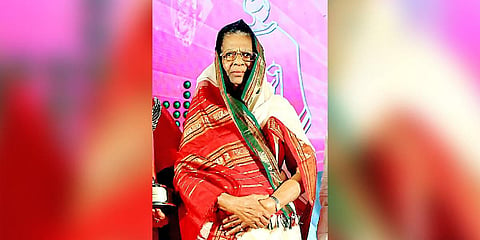

KOLLAM/CHENNAI: Justice M Fathima Beevi, a pioneering figure in the country’s judicial history and the first woman judge of the Supreme Court, passed away in Kollam on Thursday. She was 96. She was admitted to the Travancore Medicity Hospital in Kollam following pulmonary issues.
She was later diagnosed with pneumonia and breathed her last on Thursday at 11.45am, the hospital authorities said. Born in Pathanamthitta in 1927, Justice Beevi embarked on her educational journey at St Joseph’s Convent School.
She earned a BSc degree in chemistry from the University of Kerala and pursued law at the Government Law College in Thiruvananthapuram, with the encouragement of her father, Annaveettil Meera Sahib. In 1950, she made history by becoming the first woman in Kerala to earn a law degree.
Her illustrious legal career began with her topping the bar council exam in 1950, followed by her enrolment as a lawyer on November 14, 1950. Starting in the lower judiciary, she ascended the ranks, serving as a munsiff in the Kerala Subordinate Judicial Services in May 1958, subordinate judge in 1968, chief judicial magistrate in 1972, and the district and sessions judge in 1974.
In January 1980, she assumed the role of judicial member of the Income Tax Appellate Tribunal, paving the way for her elevation to the High Court as a judge on August 4, 1983. She became a permanent judge of the High Court on May 14, 1984, and retired on April 29, 1989. She was appointed as a judge in the Supreme Court on October 6, 1989, under the Rajiv Gandhi government, becoming the first Muslim woman judge in any higher judiciary. She retired from the apex court on April 29, 1992.
In 1997, Justice Beevi took charge as the Governor of Tamil Nadu, becoming the first woman from the Muslim community to hold the position. Though Beevi had many accomplishments in her legal arena, her term as governor of Tamil Nadu between 1997- 2001 ended in controversy, especially her decision to allow the swearing-in of AIADMK leader J Jayalalithaa as the chief minister of the state in May 2001 after the Assembly elections the AIAD MK leader was convicted in the TAN SI land case in October 2000.
Normally, people convicted of such crimes are barred from contesting elections for six years. But Fathima Beevi allowed Jayalalithaa to become the chief minister within eight months of her conviction in the case. This drew a lot of criticism from almost all quarters, particularly from the DMK. In 2001, Beevi stepped down as the governor of Tamil Nadu after the union cabinet decided to recall her for failing to send an objective report on what had happened during the arrest of DMK president M Karunanidhi on June 30, 2001. She gave a clean chit to the police in this incident and the then NDA government found the report as a mere reflection of the AIAD MK government.
Following this, Fathima Beevi stepped down as the governor of Tamil Nadu on July 2, 2001. Justice Beevi’s contributions extended beyond the judiciary; she served as the chairperson of the Kerala Commission for Backward Classes and was a member of the National Human Rights Commission. The mortal remains of Justice M Fathima Beevi will be shifted to Pathanamthitta, with the funeral slated to take place on Friday at 2pm at the Town Juma Mas j id i n Pathanamthitta.